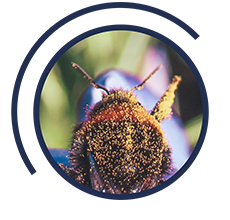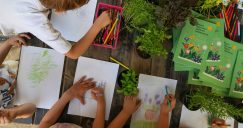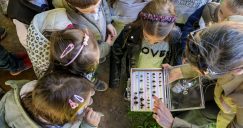
Serbia (Belgrade and other cities) Urban pollinators
BACKGROUND
Urban pollinators, including bees, wasps, bumblebees, butterflies, and many other insects play a vital role in maintaining balance in ecosystems, biodiversity, and food production.
The greatest contribution of bees and other pollinators is the pollination of nearly three-quarters of plants, which produce 90% of the world’s food. Beekeeping has become more prevalent in Serbia in recent years, surging by 37.5% from 2008 to 2018, but no regulations to support the development of urban beekeeping have been adopted.
Serbia is in need of more learning programs to educate the urban population on the importance of pollinators and their role in the urban environment.
MISSION AND VISION
Pollinators take a crucial place in our ecosystems. However, due to the critical effects of climate change, these species are affected. Due to extreme weather conditions, there are emerging disturbances that may destroy the habitat and food sources.
Furthermore, growing and blooming seasons have shifted, causing changes in the plant population that pollinators depend on. Through science education initiatives the Serbian Learning Venture aims to educate its partners and the broader community on the importance of urban pollinators for the production of food through theory and hands on urban beekeeping learning sessions.
The Learning Venture will aim to develop recommendations and policy briefs for urban policymakers to establish new and make changes to existing practices (such as grass-cutting, mosquito pollination, and pest control) in order to support the environment of urban pollinators.
This Learning Venture will explore social justice issues related to pollination, such as lack of biodiversity or loss of food production, by providing activities and resources for everyone who is interested in discovering the connection between pollinators, the environment, as well as climate justice issues.



